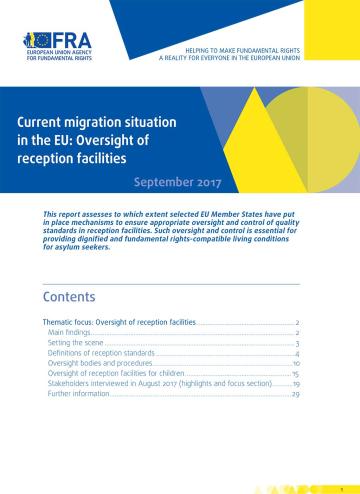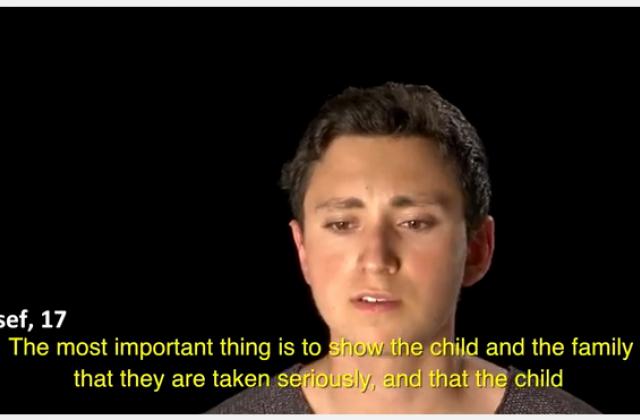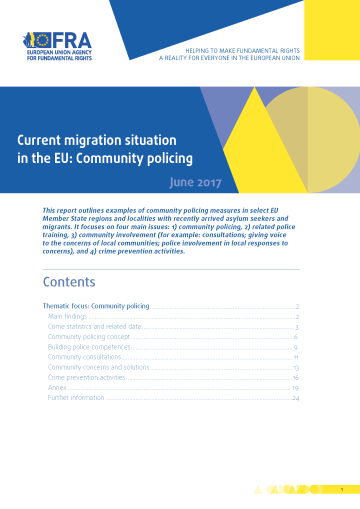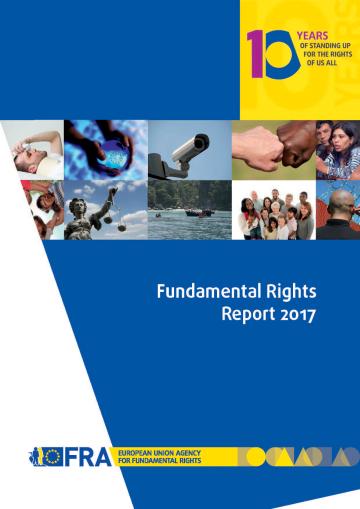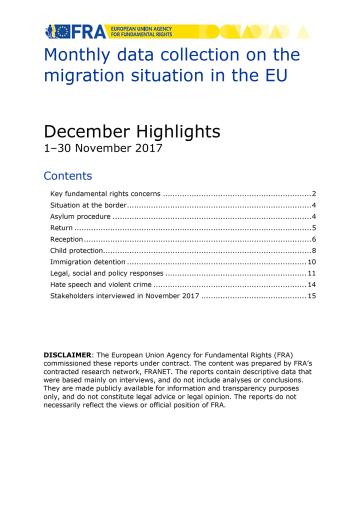Help us make the FRA website better for you!
Take part in a one-to-one session and help us improve the FRA website. It will take about 30 minutes of your time.
Asyl, Migration und Grenzen
Highlights
- SeiteThis page describes the activities of the EU Agency for Fundamental Rights (FRA) on migration and asylum. It also explains how these activities can help the European Union (EU) and its Member States to implement the Pact on Migration and Asylum in a fundamental rights-compliant manner.
- Report / Paper / Summary22März2022In view of the human rights situation since the beginning of the war in Ukraine on 24 February 2022 and the large number of persons seeking protection in the European Union (EU), the EU Agency for Fundamental Rights (FRA) dispatched, as a first step, a team composed of Agency staff who speak the national languages and with expertise on migration, child protection, equality and non-discrimination and Roma inclusion to observe and collect evidence on the evolving situation. The team reported daily to the EU mechanism for preparedness and crises management on migration (Migration Preparedness and Crisis Blueprint).
- Report / Paper / Summary14Dezember2020Artificial intelligence (AI) already plays a role in deciding what unemployment benefits someone gets, where a burglary is likely to take place, whether someone is at risk of cancer, or who sees that catchy advertisement for low mortgage rates. Its use keeps growing, presenting seemingly endless possibilities. But we need to make sure to fully uphold fundamental rights standards when using AI. This report presents concrete examples of how companies and public administrations in the EU are using, or trying to use, AI. It focuses on four core areas – social benefits, predictive policing, health services and targeted advertising.
- Handbook / Guide / Manual17Dezember2020Die Europäische Menschenrechtskonvention (EMRK) und das Recht der Europäischen Union
bieten einen zunehmend bedeutenden Rahmen für den Schutz der Rechte von Ausländern.
Das Unionsrecht zu Asyl, Grenzen und Einwanderung entwickelt sich in hoher Geschwindigkeit
weiter. Der Umfang der Rechtsprechung des Europäischen Gerichtshofs für Menschenrechte,
insbesondere zu den Artikeln 3, 5, 8 und 13 EMRK, ist beträchtlich. Der Gerichtshof
der Europäischen Union wird immer häufiger aufgefordert, sich zur Auslegung der diesbezüglichen
Bestimmungen des EU-Rechts zu äußern. Die dritte Ausgabe dieses Handbuchs
wurde im Juli 2020 fertiggestellt. Es stellt das Unionsrecht sowie die Rechtsprechung der
beiden europäischen Gerichtshöfe auf verständliche Art und Weise vor.





